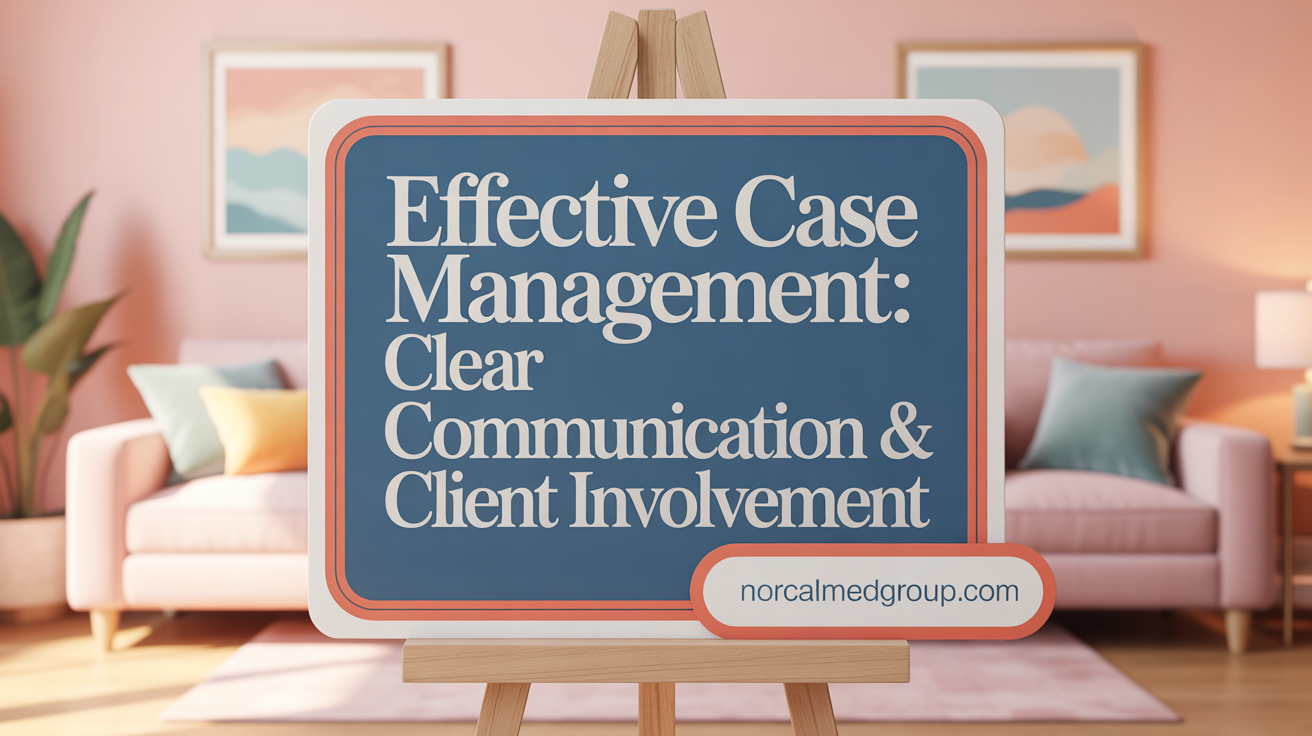The Strategic Edge in Personal Injury Cases
Collaborating with experienced attorneys offers injury victims a powerful ally in navigating the complex legal landscape of personal injury claims. From securing fair compensation to managing case intricacies and evidence, attorney partnerships provide crucial strategic advantages that can profoundly impact the success of injury cases. This article explores why working closely with legal professionals strengthens injury case strategies and maximizes outcomes for clients.
Leveraging Local Attorney Expertise for Stronger Injury Claims

What role does attorney expertise play in winning or settling personal injury cases?
Expertise in personal injury law is crucial for building a compelling case and securing fair compensation. Skilled attorneys know how to gather and present evidence effectively, craft convincing arguments, and negotiate with insurance companies and opposing counsel. Their legal knowledge increases the chances of success in both courtroom litigation and settlement discussions.
Local attorneys, in particular, bring additional advantages. They understand the specific laws and procedures that apply in their jurisdiction, which helps them navigate the legal landscape more efficiently. This familiarity allows them to avoid procedural pitfalls that could delay or weaken a case.
Moreover, local attorneys’ relationships with court officials, medical professionals, and witnesses streamline the case process. They can quickly access credible testimony and evidence, translating into stronger claims and higher settlement offers. Their ability to adapt their strategies to community values and court preferences enhances the likelihood of favorable outcomes.
Overall, an attorney’s expertise—especially when combined with local knowledge—plays a decisive role in the success of personal injury cases, increasing the chances of winning or achieving higher settlement amounts.
The Integral Role of Attorney Collaboration with Medical Professionals

Use of Medical Records and Expert Testimony
Medical records and expert testimonies form the backbone of strong personal injury cases. Attorneys rely heavily on detailed medical documentation, including treatment histories, diagnoses, and recovery progress, to build a compelling claim. Expert witnesses, such as doctors or specialists, provide unbiased, factual testimony that can significantly influence court decisions. These professionals help demonstrate the severity of injuries and substantiate claims for damages.
Importance of Medical Evidence in Injury Claims
Injury claims are only as strong as the evidence backing them up. Medical reports, professional evaluations, and diagnostic results are essential for quantifying damages related to medical expenses, pain, and suffering. They also help illustrate the long-term impact of injuries, especially in cases involving extensive or permanent damage. Clear, credible medical evidence increases the chances of securing fair compensation.
Confidentiality and Ethical Standards in Collaboration
When working with medical professionals, attorneys must uphold strict confidentiality standards, such as adhering to HIPAA regulations. Maintaining patient privacy and following ethical practices not only protect clients but also preserve the integrity of the case. Confidential collaboration ensures sensitive information is handled responsibly and professionally.
How Medical Insights Strengthen Case Strategy
Incorporating medical insights allows attorneys to refine their case strategies effectively. Understanding the extent of injuries, treatment needs, and prognosis helps tailor legal arguments and settlement negotiations. It also guides case evaluations, enabling lawyers to better estimate damages and predict legal outcomes.
Role of Expert Witnesses in Court
Medical experts often serve as crucial witnesses, offering objective opinions and explaining complex medical concepts to judges and juries. Their testimony can validate injury claims and articulate the full impact of injuries, including psychological effects or long-term disabilities. Their credible, evidence-based statements can decisively sway case outcomes.
Strategic Partnerships Between Attorneys and Case Managers Enhance Client Outcomes

Role of case managers in coordinating care
Case managers play a vital role in coordinating medical care and supporting the recovery process for injury clients. They assess individual needs, schedule appointments, and follow up on treatments, ensuring clients receive timely and appropriate care. This comprehensive support not only aids healing but also provides valuable evidence for legal cases.
Collaboration in gathering evidence and documentation
Attorneys and case managers work closely to collect crucial evidence such as medical records, treatment plans, and expert evaluations. This teamwork ensures that all relevant documentation is accurate and comprehensive, strengthening the injury claim and helping to establish liability and damages effectively.
Communication and role clarity between attorneys and case managers
Successful collaboration depends on clear communication channels and well-defined roles. Case managers focus on medical and psychosocial support, managing patient care, while attorneys handle legal strategies and evidence collection. Regular updates and coordinated efforts prevent misunderstandings and streamline the case process.
How joint efforts improve recovery and compensation
Together, attorneys and case managers create a tailored approach that balances legal and medical needs. Their joint efforts facilitate better treatment adherence, timely documentation, and strategic case planning, which can lead to faster recoveries and maximized compensation for clients.
Case management tools and systems used
Modern case management employs advanced software with dashboards for tracking case progress, deadlines, and client updates. Standardized templates and AI tools help streamline routine tasks like documentation and communication, allowing the team to focus on complex case aspects and improve efficiency.
| Aspect | Description | Benefits |
|---|---|---|
| Coordination tools | Use of case management software | Improved case tracking, timely updates |
| Communication methods | Weekly meetings, electronic communication | Transparency, rapid response |
| Resource management | Access to expert networks | Strong evidence base, better payout |
| Role clarity | Defined responsibilities | Reduced errors, effective collaboration |
A well-structured partnership between attorneys and case managers is essential for delivering comprehensive client care, ensuring thorough case documentation, and ultimately increasing the likelihood of favorable legal outcomes.
The Advantages of Engaging Experienced Injury Lawyers
What role does attorney expertise play in winning or settling personal injury cases?
Experienced injury lawyers are crucial to achieving the best possible outcomes. Their deep understanding of personal injury law allows them to evaluate cases thoroughly and develop strategic evidence plans. Skilled negotiators can effectively handle insurance companies, countering unfair low offers with persuasive arguments. They also have access to a network of expert witnesses, medical professionals, and resources like funding for evidence collection, which helps build a strong case.
These qualities directly influence the case’s success, whether settling early or pursuing trial. They work tirelessly to maximize what victims receive in compensation for damages like medical expenses, lost wages, and pain and suffering. Overall, attorney expertise acts as the backbone of winning or settling injury claims effectively and fairly.
How does specialized knowledge improve injury claims?
Lawyers with a focus on specific injuries, such as burns or traumatic accidents, understand nuanced case details that general practitioners may overlook. This specialization enables them to accurately assess damages, including long-term care costs like surgeries, therapies, and psychological support. They interpret complex medical reports and classify injury severity with precision. This detailed understanding elevates the case’s credibility and helps in quantifying damages accurately.
Why are negotiation skills vital in personal injury cases?
Negotiation skills are vital for managing insurance companies and opposing counsel. Top injury lawyers use their experience to craft compelling settlement offers and counter low-ball proposals. They aim to reach agreements that truly reflect the victim’s damages and future needs. Clear communication, empathy, and strategic bargaining are essential in guiding negotiations toward fair resolutions, saving clients time and stress.
What resources do experienced law firms offer?
Established personal injury law firms provide access to expert witnesses like medical specialists, accident reconstruction experts, and financial assessors. They also have the ability to fund necessary legal expenses, including filing fees and expert testimony. These resources help craft comprehensive cases that stand up in court or during negotiations.
How do thorough case evaluations and calculations impact settlement strategies?
Skilled attorneys conduct detailed evaluations of injuries, reviewing medical records, expert reports, and long-term care needs. They accurately calculate damages, including future medical costs and pain and suffering, which forms the basis of negotiations. Precise calculations prevent undervaluation and support robust claims.
When is legal representation especially crucial?
Legal representation is essential in court proceedings or when complex negotiations are involved. An attorney organizes evidence, presents persuasive arguments, and advocates for fair compensation. Their knowledge of legal procedures and courtroom tactics can significantly influence case outcomes.
In summary, engaging a seasoned injury lawyer ensures that victims leverage expert legal skill, strategic resource utilization, and effective negotiation tactics to secure maximum recovery. Their comprehensive approach combines legal expertise with compassionate client care, vital to navigating the often complex injury claim landscape.
Best Practices for Effective Collaboration with Attorneys

How can clear communication and regular updates improve case management?
Effective communication between clients and attorneys is vital for the success of a personal injury case. Regular updates ensure that attorneys are fully aware of the latest medical developments, treatment progress, and any new evidence or witnesses. This ongoing dialogue helps attorneys adjust strategies promptly and prevents misunderstandings.
Using structured communication channels like weekly briefings or case management software with dashboards can streamline this process. These tools help prioritize urgent matters, track case milestones, and facilitate quick response times.
Why is involving clients in decision-making important?
Involving clients in key decisions fosters trust and ensures their needs and concerns are prioritized. When clients understand the legal process and have a say in settlement options or legal strategies, they feel more engaged and confident.
Legal professionals should clearly explain case options, potential risks, and possible outcomes, allowing clients to make informed choices. This transparency leads to better satisfaction and can positively influence case results.
How can managing expectations about timelines and outcomes benefit clients?
Legal cases, especially personal injury claims, can be unpredictable. Setting realistic expectations about case durations, possible challenges, and settlement timelines helps prepare clients for various scenarios.
Openly discussing these factors reduces client frustration and stress. It also encourages patience and cooperation, which are critical during lengthy negotiations or court proceedings.
What role does empathy and maintaining client trust play during the legal process?
Showing empathy and understanding helps clients feel supported in stressful situations. Compassionate attorneys listen actively, address concerns kindly, and respect clients’ emotional states.
Building trust through empathetic communication enhances cooperation and allows attorneys to gather essential information more thoroughly. Additionally, it improves the overall client experience and case outcomes.
How do legal support teams and ethical practices contribute to effective collaboration?
Having a dedicated legal support team streamlines case handling, minimizes errors, and maintains consistent client communication. Clear role definitions between lawyers and case managers avoid confusion and foster teamwork.
Adherence to ethical standards, such as confidentiality and privacy laws like HIPAA, ensures trust and integrity in the relationship. Regular coordination and transparent practices are essential for managing complex cases efficiently.
In conclusion, implementing these best practices—clear communication, client involvement, realistic expectations, empathy, and ethical collaboration—creates a strong foundation for successful personal injury case management. This approach not only improves case outcomes but also enhances the client’s confidence and overall experience.
| Practice Area | Best Approach | Benefits |
|---|---|---|
| Communication | Regular updates via structured channels | Keeps attorneys informed, prevents misunderstandings |
| Client Decision-Making | Explain options and include clients in key choices | Builds trust, improves satisfaction |
| Managing Expectations | Set realistic timelines and possible challenges | Reduces stress, prepares clients for the process |
| Empathy and Trust | Show genuine understanding and support | Encourages cooperation, enhances case strength |
| Legal Support and Ethics | Clearly define roles, follow confidentiality standards | Ensures smooth operation, maintains integrity |
By following these proven strategies, attorneys can foster a collaborative environment that supports successful case resolutions.
Navigating Insurance Challenges Through Attorney Collaboration

Why do insurance companies discourage hiring a lawyer after an accident?
Many insurance companies prefer claimants to settle quickly without legal representation. They often view lawyers as hurdles to their goal of minimizing payouts. When clients hire attorneys, insurers face resistance to low settlement offers and increased scrutiny of their tactics.
Lawyers know how to challenge unfair offers and advocate effectively for fair compensation. Without legal guidance, claimants risk accepting inadequate settlements or sharing information that could weaken their case. Attorneys also ensure that all evidence is preserved and that communication remains focused and strategic.
Why do insurance companies discourage hiring a lawyer after an accident?
| Reason | Explanation | Impact on Claim |
|---|---|---|
| Fear of larger settlements | Attorneys fight for full damages | Higher payout demands |
| Increased scrutiny | Lawyers demand thorough investigation | Longer claims process |
| Better negotiation skills | Lawyers handle complex negotiations | Reduced insurer leverage |
By engaging legal help, injured individuals can better navigate complex insurance processes, avoid common pitfalls, and secure appropriate compensation.
How attorneys prevent manipulation and protect rights
Legal professionals are adept at identifying insurer tactics designed to undervalue or deny claims. They scrutinize claims for inconsistencies or improperly recorded information.
Attorneys ensure that insurers do not manipulate the facts or pressure clients into accepting unfair settlements. They manage all communications, reducing the risk of accidental self-incrimination.
How attorneys prevent manipulation and protect rights
| Tactic By Insurers | Legal Countermeasure | Result |
|---|---|---|
| Lowball offers | Lawyers negotiate for fair value | Better settlements |
| Recordings or misleading info | Proper documentation and review | Accurate case assessment |
| Unreasonable deadlines | Legal timelines enforce fair processing | Adequate investigation time |
Having legal representation provides a shield against exploitative practices, ensuring that injured parties’ rights are safeguarded throughout the claim process.
Attorney strategies in negotiating fair settlements
Experienced injury lawyers utilize several strategies, including comprehensive case evaluations, gathering substantial evidence, and expert testimonies.
They leverage negotiation skills to counteract insurers' attempts at undervaluing claims. Moreover, they communicate clearly and firmly, advocating for maximum compensation.
Benefits of legal representation in claims with insurers
Legal counsel offers numerous benefits, such as thorough legal knowledge, access to resources like medical and professional witnesses, and efficient case management.
This expertise often results in higher settlement amounts—statistically, individuals represented by attorneys receive settlements 3.5 times higher. Additionally, legal representatives handle all negotiations, allowing clients to focus on recovery.
| Benefit | Description | Impact |
|---|---|---|
| Higher settlements | Skilled negotiation and evidence | Increased compensation |
| Better case management | Organized documentation and strategy | Quicker resolutions |
| Legal protection | Safeguard against insurer tactics | Fair treatment |
Ultimately, working with a lawyer ensures that injury claims are pursued comprehensively and strategically, maximizing the chances for a successful and fair outcome.
Personal Injury Attorneys as Advocates for Societal Justice and Safety
How do personal injury attorneys benefit society as a whole?
Personal injury attorneys play a vital role in safeguarding societal interests by ensuring that individuals harmed by negligence or unsafe practices receive fair compensation. Their work promotes accountability among corporations, employers, and other entities, urging them to adhere to safety standards and implement better practices.
By actively pursuing legal remedies for injured parties, these attorneys help highlight safety deficiencies and push for legal reforms aimed at injury prevention. Their advocacy increases transparency within industries, leading to safer environments for workers, consumers, and the public.
Furthermore, the legal actions initiated by personal injury lawyers often result in improved regulations and safety protocols. This not only benefits the injured parties but also enhances overall community safety and reduces the occurrence of preventable injuries.
Role in promoting legal reforms and accountability
Personal injury attorneys often serve as catalysts for change by exposing unsafe practices and advocating for stronger laws. Through their cases, they draw public and governmental attention to systemic issues that need addressing.
This influence fosters a culture of accountability, encouraging organizations to prioritize safety and ethical conduct. As a result, society benefits from a more transparent legal environment that better protects all citizens.
How injury law fosters safer practices and transparency
Injury law incentivizes entities to maintain safer operations by exposing the financial and reputational costs of negligence. Attorneys help ensure that victims' rights are upheld, which in turn compels companies to improve safety measures.
Legal proceedings often involve investigations and disclosures that shed light on hazardous conditions, promoting transparency. These insights lead to better industry standards and stricter compliance, ultimately reducing injury rates.
Impact beyond individual cases to community safety
The work of personal injury attorneys extends beyond individual recoveries; it fosters broad societal benefits. By advocating for victims and pushing for reforms, they contribute to safer workplaces, products, and public spaces.
Their efforts often lead to community-wide educational initiatives and policy changes that prevent future injuries. This proactive approach helps build a safer environment conducive to healthier, more secure communities.
Maximizing Injury Case Success Through Attorney Collaboration
Injury cases present complex legal and medical challenges that require strategic planning and expert advocacy. Collaborating with experienced attorneys — especially those familiar with local laws and supported by medical professionals and dedicated case managers — equips clients with powerful resources to navigate these challenges effectively. Attorney expertise ensures thorough evidence gathering, skillful negotiation, and tailored legal strategies that optimize compensation outcomes. Additionally, partnering with compassionate legal teams enhances client trust and communication, essential to managing the stresses of personal injury claims. Together, these collaborative efforts dramatically strengthen injury case strategies, leading to fairer settlements, improved recovery support, and ultimately better justice for injury survivors.
References
- How Local Attorneys Strengthen Personal Injury Cases at Every Stage
- Why Hiring the Best Injury Lawyer Can Make a Difference in Your ...
- How Attorneys • Doctors Work Together to Strengthen Injury Claims
- Best Practices for Attorney and Case Manager Collaboration
- Why You Should Always Work With a Personal Injury Law Firm
- Personal Injury Claims: How Case Managers Collaborate ... - CRCI
- 5 Ways To Strengthen Your Personal Injury Case
